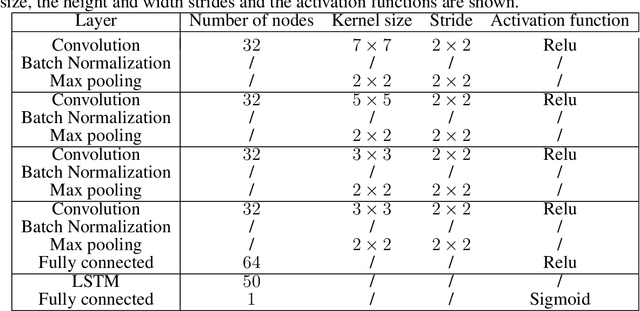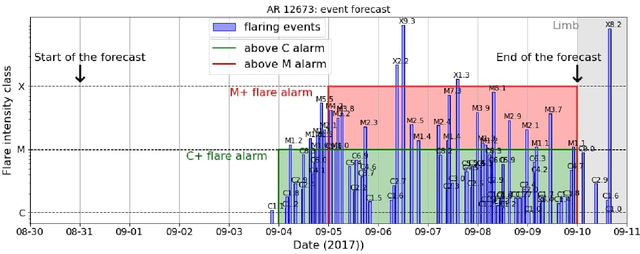Operational solar flare forecasting via video-based deep learning
Paper and Code
Sep 12, 2022



Operational flare forecasting aims at providing predictions that can be used to make decisions, typically at a daily scale, about the space weather impacts of flare occurrence. This study shows that video-based deep learning can be used for operational purposes when the training and validation sets used for the network optimization are generated while accounting for the periodicity of the solar cycle. Specifically, the paper describes an algorithm that can be applied to build up sets of active regions that are balanced according to the flare class rates associated to a specific cycle phase. These sets are used to train and validate a Long-term Recurrent Convolutional Network made of a combination of a convolutional neural network and a Long-Short Memory network. The reliability of this approach is assessed in the case of two prediction windows containing the solar storm of March 2015 and September 2017, respectively.
 Add to Chrome
Add to Chrome Add to Firefox
Add to Firefox Add to Edge
Add to Edge